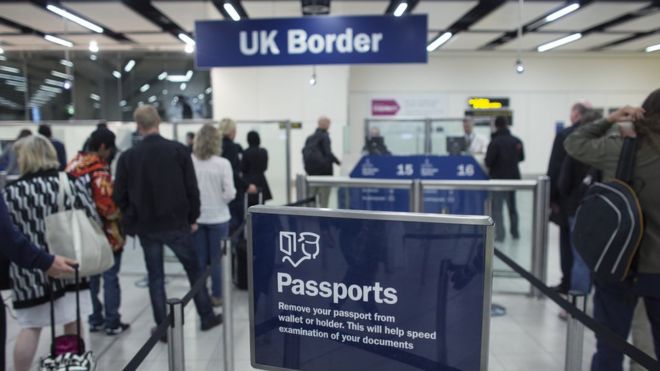
One of the most senior Dutch government ministers has said a fundamental EU principle, freedom of movement, needs to be radically reformed.
Deputy prime minister Lodewijk Asscher said support was falling across Europe over the way it has been implemented.
Free movement, which allows any citizen of an EU country to work anywhere across the bloc, had led to wages being undercut and jobs lost, he said.
Mr Asscher argued the Brexit talks were a chance to look again at the policy.
Reform, he told the BBC, would mean “less immigration” across the EU if undercutting wages was banned.
The stark attack on the way freedom of movement operates could be helpful to Theresa May as Britain looks to gain privileged access to the single market at the same time as controlling EU immigration once the UK has left the EU.
Mr Asscher is the leader of the Dutch Labour Party, which is in a coalition government with the People’s Party for Freedom, led by the Netherlands’ prime minister, Mark Rutte – who is seen as an ally of the UK.
Although Mr Asscher made it clear that he supported the principle of free movement, he said the rule had been used as a “business model” for lowering wages.
“In essence [what] we have seen happening [is] that free movement has become synonymous with a race to the bottom, with undercutting of wages, with unfair competition in the labour market and that has to do with the rules Europe has produced itself,” said Mr Asscher, who is also the Dutch employment minister.
“It is not the principle, it is the rule that has become such a big issue. It means that here in the Netherlands, like in other countries, on the scaffolding [site] you can see a Romanian or Portuguese painter doing the exact same work as a Dutch painter right next to him that is allowed to earn two, three, four hundred euros less than the Dutch worker.
“That means, of course, that the Dutch painter is out of work, out of a job,” Mr Asscher said.
“It means the smaller company that cannot afford to hire internationally is out of work.
“It means the support for the principle – which in essence is good – is eroding.
“It has to change if we want to preserve the principle, if we want to preserve the support for the European Union.
“The problem is that it has become a business model, a business model for lowering wages.
“I think there would be less migration if the principle of equal pay for equal work had been honoured.”
Whether free movement of workers has actually led to lower wages and fewer jobs – a key part of the referendum debate in the UK – is controversial and has been disputed.
The Dutch government is preparing for elections in March where immigration is one of the key issues.
Geert Wilders’ far-right Freedom Party is running on a tough anti-immigration ticket and has called for a referendum on whether the Netherlands should leave the EU.
It has been gaining support and could be the largest party after the election.
Mr Asscher’s move on freedom of movement is seen by some as an effort to shore up support for the Labour Party.
The deputy prime minister said that although the Netherlands was a natural ally of the UK, the EU would negotiate as a bloc and that Britain could not “have its cake and eat it”, cherry picking which parts of the EU rule book it wanted to abide by in return for special access to the economically important single market.
“I think what is important with what both Angela Merkel [the German Chancellor] and my Prime Minister have said [is] that you can’t just say ‘I want this to happen’ and have everybody else say yes.
“You need to make sure the change is to the benefit to all members.
“Not just because you want something done, you only want the dessert and not the other things.
“It would however be a mistake, a serious political mistake, if we don’t use the Brexit momentum to look at what is wrong with the current European Union. We need it to change.
“It would be my hope, because we are so close to the UK, that there is a good deal between the EU and the UK.
“We have always been allies, and we are very important trading partners.
“We should not go out there to punish the Brits, we want them to prosper with us.
“However, a negotiation is a negotiation.”
[Source:- BBC]
